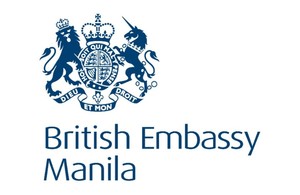Race to Zero: Philippine business leaders commit to accelerating climate action
British Embassy Manila in partnership with Eco Business hosted ‘Leaders or Laggards: Corporate leadership in low-carbon post-pandemic recovery’

As part of continuing activities in the run-up to the 26th Conference of Parties (COP26), the British Embassy Manila in partnership with Eco Business hosted the high-level virtual event ‘Leaders or Laggards: Corporate leadership in low-carbon post-pandemic recovery’. It brought together policy makers, business leaders, industry representatives, chambers of commerce, and climate advocates including youth and media in an interactive dialogue on one of the most important challenges of our age.
Deputy Head of Mission Alastair Totty said:
As countries are slowly emerging from the pandemic, the global low carbon transition is inevitable and accelerating. Now is the time for businesses and companies to aggressively be part of the conversation and contribute concrete actions.
Climate change and the Paris Agreement will redefine the global economy of the 21st century. The business community has a growing understanding that building a green economy is not just good for the environment, but also good for the bottom line, and makes economic sense.
The event included discussion of business models involving cleaner, fairer and sustainable plans, practices and operations toward low-carbon emissions, including investment in renewable energy, adoption of energy efficiency practices, and promotion of sustainable/green investments.
CFO, CRO, CSO and Senior Managing Director Jose Teodoro K. Limcaoco (Ayala Corporation) said:
I’m a firm believer in sustainability and a carbon free economy. You have to balance the need of the country short term, and there is always the ambition for the long term, but you have to work with the reality on the ground.
President and CEO Federico Lopez (First Philippine Holdings) said:
COVID has turned lives upside down and inside out, but this will pale in comparison to the effects of the climate crisis. Imagine if a vulnerable country like the Philippines did that [net zero target legislation], it would say we don’t only talk the talk, but we walk the walk.
The webinar called for support and pledges from business leaders to join the ‘Race to Zero’ – a global campaign, launched at the Climate Action Summit in 2019, to rally leadership and support from businesses, cities, regions, and investors for a healthy, resilient, zero-carbon recovery that limits future threats, creates decent jobs, and unlocks inclusive and sustainable growth. It aims to build momentum around the shift to a decarbonised economy ahead of COP26, where governments must strengthen their contributions to the Paris Agreement.
Information and Knowledge Division Head Ludwig Federigan (Climate Change Commission, Philippines) said:
We aspire, with help of developing countries and development partners, that our country will meet ambitious GHG emission reduction targets by 2030.We cannot let our economy grow with the ways that caused the climate crisis.
Chief Negotiator for Climate Change Joseph Teo from Singapore said:
We need an ASEAN renewable grid. Not having a specific time frame for carbon neutrality does not mean we are not working towards it.
UK Deputy COP26 Envoy Alison Campbell said:
In the UK, we have found that committing to net zero is an important first step, but that it needs to be followed up with robust and transparent strategies for achieving this goal. Only by setting out clear pathways and policies for achieving these ambitious targets can the public, business and international community have confidence that they will be achieved.
COP26 Regional Ambassador Ken O’ Flaherty said:
The message is clear. We need collective cooperation and action across wider stakeholders and sectors of society to work with the Government in putting forward bold and concrete actions to tackle climate change.
The high-level virtual event concluded with overwhelming support from business leaders to take collective action to address the worsening impacts of the climate crisis, and contributed to building awareness in the private sector of its vital role in implementing Nationally Determined Contributions.